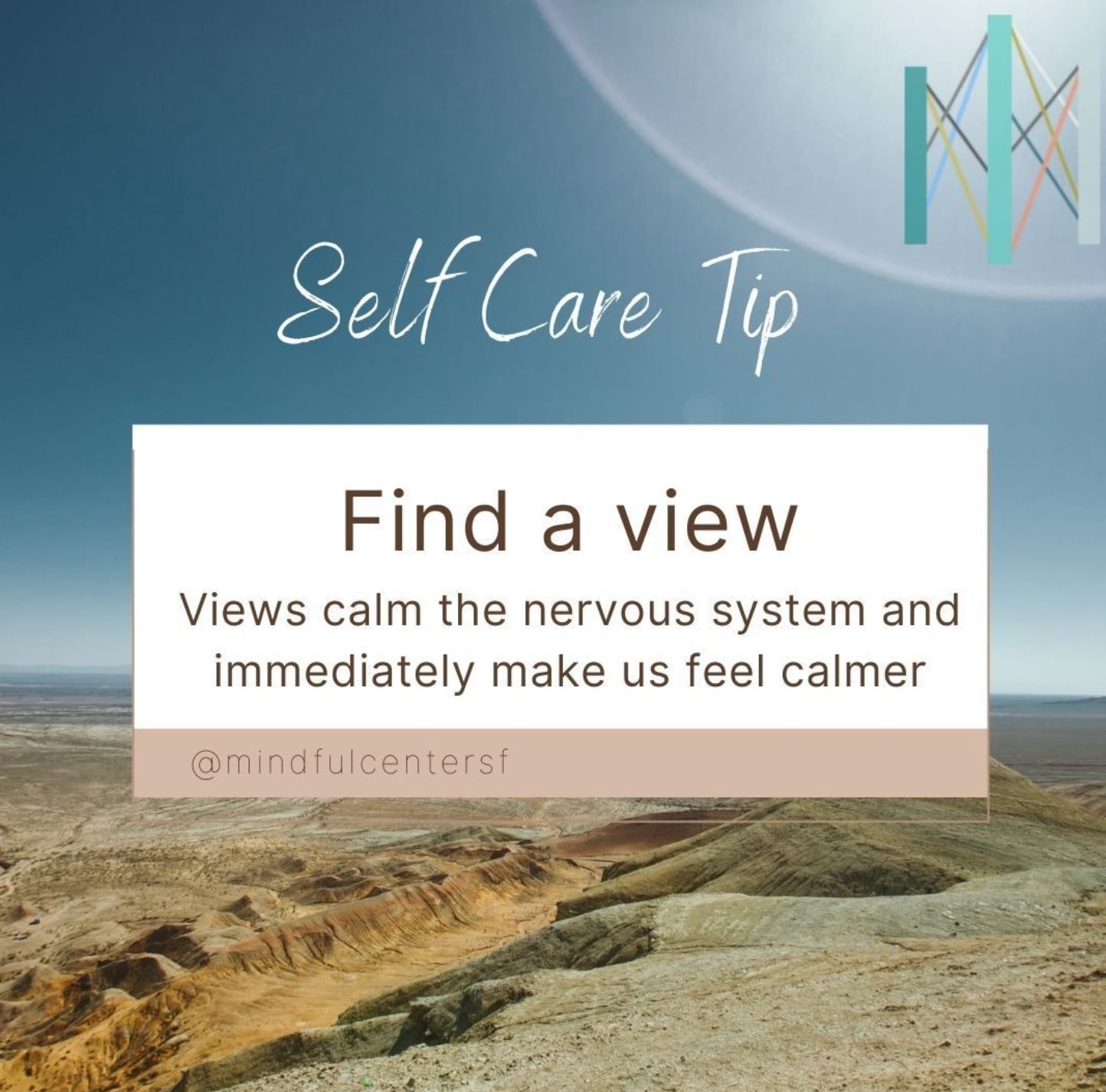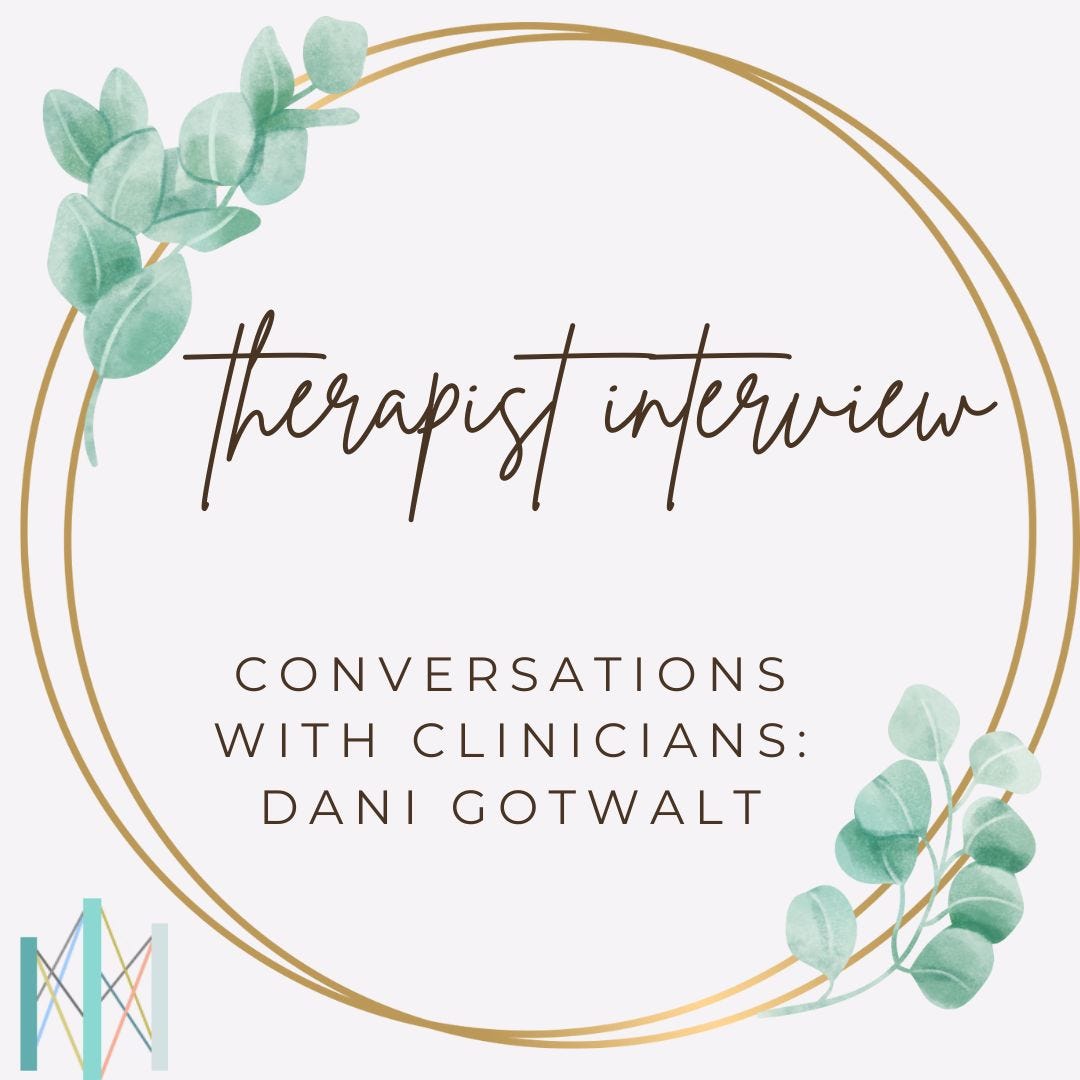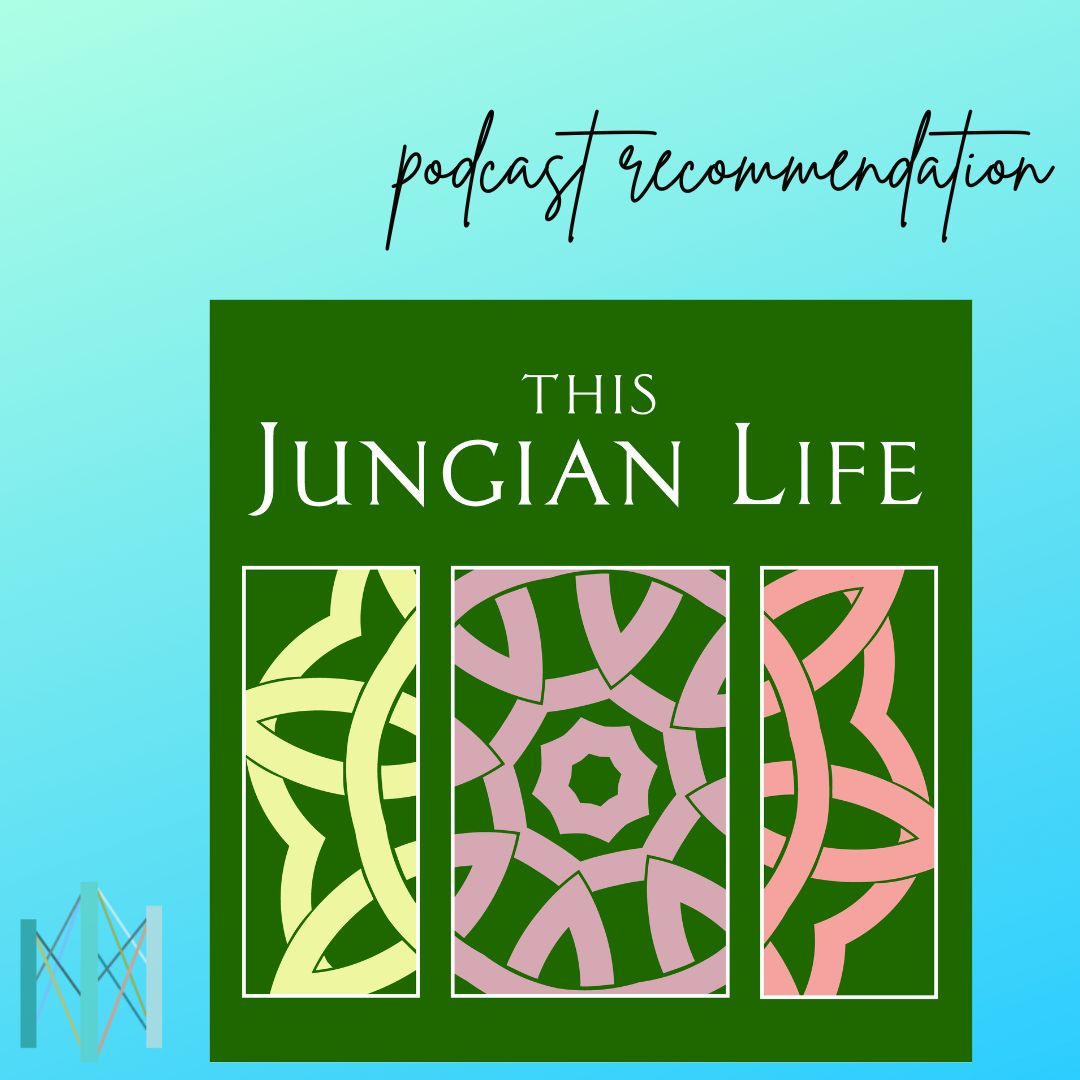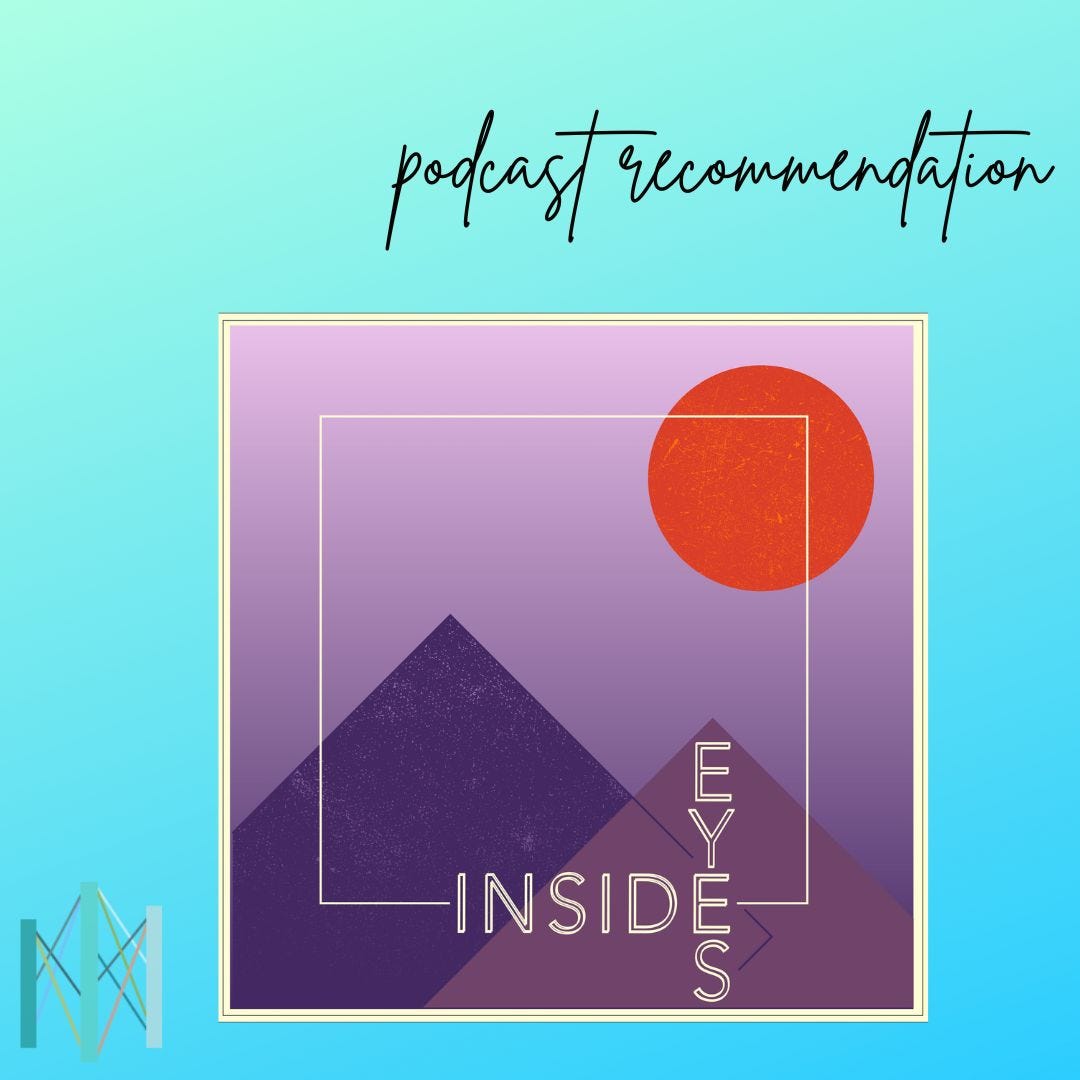Center for Mindful Psychotherapy, August Newsletter
Your monthly newsletter from our non-profit collective of ~100 Associate Marriage and Family Therapists in the San Francisco Bay Area
Bringing You A Moment of Mindfulness
Welcome back to your monthly newsletter. How have the past few weeks been for you? What are you sitting with? What are you avoiding?
The Olympics have been on many people’s minds this month. And the “mind” has been a part of the Olympics this time around in a strong way. Many of the athletes have been open about prioritizing their mental health, so in this newsletter we are going to look back at some of the highlights around that. We also introduce you to one of our featured therapists, tell you a little bit about Hakomi therapy, and share lots of links and recommendations that we hope will be inspiring throughout the month ahead.
Before we dig in, though, here's a reminder to take just a moment to land here. You do not need to multi-task. You don't have to think about what's next. Be right here with these words on this page. Listen to your own heartbeat and feel your feet on the ground as you take in these ideas. We are happy to be here in this space with you.
Simone Biles Leads the Way in Prioritizing Mental Health
When we think of Simone Biles, we think not just of the power and strength of her physical body, but of the strength she has exhibited in putting her mental health first, even when it has meant stepping back from her athletic career. And, as her victories at the recent Olympics show, stepping back doesn’t mean going backward; sometimes it’s the exact thing we need to do in order to succeed in our lives.
Simone Biles' Decision to Prioritize Mental Health
The world watched in surprise and wonder when Biles made the unprecedented decision to withdraw from the team finals and the individual all-around competition during the 2020 Tokyo Olympics. She cited experiencing "the twisties," a phenomenon where a gymnast loses their sense of spatial awareness while in mid-air, making it dangerous to perform. Her mind and body were not in sync, and rather than push through the discomfort and risk injury, Biles chose to step back and prioritize her mental well-being.
This decision sent ripples through the sports community and beyond. For many, it was difficult to comprehend why someone at the pinnacle of their career would choose to withdraw at such a crucial moment. However, Biles’ courage in putting her mental health first became a pivotal moment in sports history. She highlighted that mental injuries, like physical ones, can be just as debilitating and deserve the same attention and care.
Following her withdrawal, Biles took a break from the physical demands of gymnastics to focus on total mind-body wellness. She utilized therapy and meditation as key practices in her recovery. Biles referred to her therapy sessions as "religious," indicating her deep commitment to maintaining her mental health. This consistent focus on therapy was crucial to her successful return to gymnastics after the Tokyo Olympics, where she famously took time off to prioritize her mental well-being.
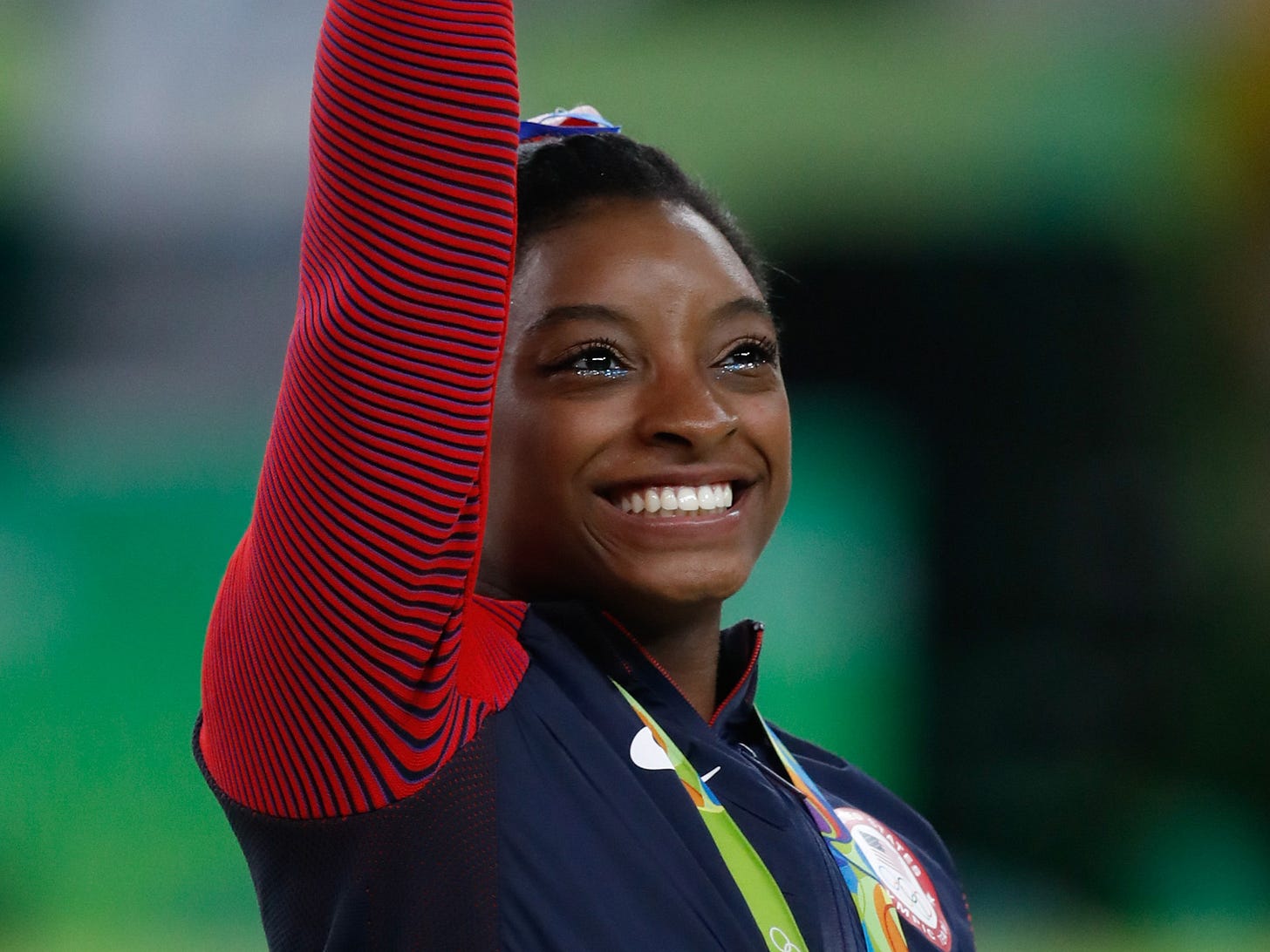
Biles' Continued Focus on Mental Health
When Biles returned to competition at the 2024 Paris Olympics, it was clear that her approach had evolved. Before her performances, Biles was seen meditating, a practice she shared openly on social media. This act of mindfulness, done in the midst of one of the world’s most high-pressure environments, resonated with many. It served as a reminder that mental preparation is just as crucial as physical training and that wellness requires attention to both the mind and body.
Biles' focus on mental health extended beyond her pre-competition routines. She continued to prioritize regular therapy sessions, which she credits as being integral to her ability to perform at the highest level. These therapy sessions were so essential that Biles made sure to have them even on competition days during the Olympics. Her morning therapy sessions helped her stay mentally grounded and perform at her best. This emphasis on consistent therapy highlights the importance of maintaining mental well-being, not just addressing it when a crisis occurs.
Additionally, Biles spoke candidly about the anxiety she felt during her time in the Olympic Village, where the pressures of competition and her past experiences came to the forefront. Her openness about these struggles provided a powerful example of vulnerability, showing that even the most accomplished athletes face mental health challenges. Biles' comparison of mental and physical injuries further emphasized that both need to be treated with the same seriousness and care.
Lessons from Simone Biles
Biles’ advocacy has done more than just change the conversation around mental health in sports; it has helped to continue the process of destigmatizing it in broader society. By prioritizing her mental health in such a public way, Biles has given millions of people, particularly women, a sort of permission or example to do the same. Her influence extends far beyond the gymnastics mat, reaching into corporate offices and classrooms and other everyday lives, where the idea of taking mental health leave is becoming increasingly accepted.
Through her actions, Biles has helped to redefine what it means to be strong and successful, emphasizing that mental health is an essential part of overall health. There are many lessons to be learned from Simone Biles’ journey. First and foremost is the importance of mental health, especially in high-pressure environments. Whether in sports, business, or academia, the pressure to perform can be overwhelming. Biles’ story serves as a powerful reminder that it’s okay to step back, reassess, and prioritize mental well-being. This is not a sign of weakness, but of wisdom and strength.
By continuing to prioritize and advocate for mental health, Biles has shown that true success is about more than just winning medals—it’s about maintaining a healthy mind and body, and leading by example in a world that often prioritizes relentless achievement over well-being.
7 Other Olympic Athletes Talking About Mental Health
Simone Biles has stood out as a mental health advocate during this year’s Olympics, but she’s not the only one being open about her mental health. Here's a list of some of the other 2024 Olympians that have helped to open up this conversation:
Naomi Osaka (Tennis)
Naomi Osaka has continued to be a powerful advocate for mental health during the 2024 Olympics. Known for her openness about battling anxiety and depression, Osaka has taken multiple mental-health breaks from competition to prioritize her well-being. Her willingness to step back has helped pave the way for other athletes to recognize and address their mental health needs without shame.
Jordan Chiles (Gymnastics)
Jordan Chiles, a key member of Team USA Gymnastics, prioritized her mental health during the 2024 Paris Olympics amid a controversial ruling that impacted her bronze medal standing. Chiles took a break from social media to focus on her well-being, exemplifying the importance of setting boundaries and protecting mental health in high-pressure environments.
Filipe Toledo (Surfing)
Brazilian surfer Filipe Toledo made headlines in 2024 when he announced a temporary withdrawal from competition to focus on his mental health. After years of continuous competition, Toledo recognized the toll it was taking on his well-being and decided to step back to recharge. His candidness about his struggles emphasizes the necessity for athletes to care for their mental health as much as their physical health.
Noah Lyles (Athletics)
Track and field star Noah Lyles has been vocal about the importance of mental health throughout his career, and the 2024 Olympics were no exception. Lyles, who has been in therapy since childhood, openly discusses how mental health is a crucial part of his life and athletic success. His advocacy encourages other athletes to embrace mental health support as a key component of their overall well-being.
Charlotte Worthington (BMX Freestyle)
Charlotte Worthington, a BMX Freestyle champion, took a mental health break in 2024 after struggling with the pressures of her sport. Her decision to step back and focus on her mental well-being was vital in her recovery. Worthington’s experience highlights the importance of addressing mental health issues and seeking support when needed.
Rayssa Leal (Skateboarding)
Rayssa Leal, the young skateboarding sensation who first gained fame at the Tokyo Olympics, began therapy to manage the immense pressures of competition. Competing at such a young age, Leal’s choice to seek mental health support in 2024 underscores the importance of recognizing and addressing mental health challenges early in an athlete's career.
Janja Garnbret (Sport Climbing)
Janja Garnbret, a top competitor in sport climbing, has been open about the pressure she places on herself as a perfectionist. During the 2024 Olympics, Garnbret discussed how managing this pressure is one of the toughest aspects of being an elite athlete. Her transparency helps to humanize the experience of high-level competition and encourages others to acknowledge their own mental health challenges.
Conversations with Clinicians: Dani Gotwalt
Over on our blog, we regularly interview our associate therapists to give you a chance to get to know them better. Recently, we interviewed Dani Gotwalt, a San Francisco-based associate therapist who especially loves working with adults and teens who identify as:
an adult child of emotionally immature parent
a people pleaser/helper/caretaker
the “strong one” for their family and friends
a person who was called “mature for their age” or “old soul” growing up
She also specializes in helping people with grief and loss, particularly after a sudden traumatic loss. Dani’s therapeutic orientation incorporates attachment/relationship, EFT, social justice/feminist, somatic mindfulness (Hakomi) and trauma-informed techniques.
An insight she shares from her own experience in therapy:
“The work is more like a spiral than a straight path, just because I would come back to a topic or memory I’ve processed before did not mean I wasn’t growing.”
What is Hakomi Therapy?
Hakomi therapy is an experiential, mindfulness-based psychotherapy that combines elements of Eastern philosophy, Western psychology, and body-centered techniques. It emerged as a response to the limitations of traditional talk therapy and embraces a more holistic and experiential perspective on psychological well-being.
This approach emphasizes the importance of present-moment experiences and explores the influence of early life experiences on our beliefs, behaviors, and emotional patterns. Hakomi therapy provides a nurturing and non-invasive space where clients can gently explore their inner worlds, fostering self-awareness, emotional healing, and personal growth.
Hakomi therapy can be effective for a wide range of issues, including trauma, relationship challenges, anxiety, depression, grief, and personal growth. By fostering mindfulness and self-awareness, it helps clients gain insights, release limiting beliefs, and develop healthier ways of being in the world.
Learn more about Hakomi therapy here.
Recommendations
Here are this month’s recommendations:
"Looking at the headlines--a global pandemic, the worsening climate crisis, political upheaval--it can be hard to feel optimistic. And yet hope has never been more desperately needed." Jane Goodall shares reasons for hope.
“Eavesdrop on three Jungian analysts as they engage in lively, sometimes irreverent conversations about a wide range of topics. Join them for a new episode every Thursday as they discuss cultural currents, family dynamics, personal issues and more, and share what it’s like to see the world through the depth psychological lens provided by Carl Jung. Half of each episode is spent discussing a dream submitted by a listener.” - This Jungian Life
Tift masterfully examines how the developmental approach of psychotherapy and the fruitional perspective of Buddhism can be integrated to enrich our lives. By combining these methods, Tift shows us how to connect deeply with our true selves, improve our relationships, and let go of outdated behaviors. A compelling read for those at the crossroads of mental health and spiritual growth.
“Inside Eyes is a podcast that focuses on the use of psychedelics & entheogens to heal from sexual trauma. … I first became interested in creating this audio series because I see sexual assault/abuse as an assault on the spirit, and thus sexual trauma as a spiritual wound. Many people turn to entheogens and psychedelics as an option to heal on a spiritual level and in this series I interview people about their personal experiences in doing this healing, as well as professionals in the field.” - Laura Mae Northrup
"Arranged schematically, the book uses the inherent structure of the chakra system as a map upon which to chart our Western understanding of individual development. Each chapter focuses on a single chakra, starting with a description of its characteristics and then exploring its particular childhood developmental patterns, traumas and abuses, and how to heal and maintain balance." - Amazon description
Music is the Medicine
This month’s music share is:
Mental Health News From Around The Web
ABC News: More US schools take meditation breaks; teachers say it helps students' mental health
PCTA: Charles Costa: Running 90 Marathons in 90 days for Mental Health
Health Matters: Why Pets Are Good for Your Mental Health
Vogue: Meet Beacon, Team USA's Therapy Dog
Harvard Health: Depression more likely during perimenopause than before or after
NY Post: Pucker up: Couples therapist reveals 6-second daily ritual that could save your relationship
NPR: Why we need to talk about teens, social media and mental health
Psychology Today: "Didi": Insecurity, Dissociation, Cringe, and Sense of Self
Social Media Today: The Psychology of Sharing: Emotions Content Must Evoke To Go Viral [Infographic]
Pure Wow: I Have Eldest Daughter Syndrome. Here Are 3 Things My Therapist Told Me to Stop Doing
Forbes: How To Incorporate Mental Health In Onboarding From Day One
Bryant University: Thoughts On The Future of Psychology






